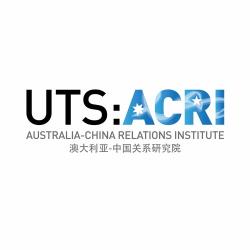December 2018 marks three years since the China-Australia Free Trade Agreeement (ChAFTA) entered into force. What is the significance of the agreement? What impact has ChAFTA had on Australian businesses? Has it aided their internationalisation and operation in the Chinese market?
Tamara Oyarce, PhD Candidate and Sessional Lecturer at the University of Sydney Business School, joins Simone van Nieuwenhuizen, Project and Research Officer at the Australia-China Relations Institute (ACRI) at the University of Technology Sydney, to discuss ChAFTA’s importance in the Australia-China economic relationship, some of the controversies surrounding its introduction, and what work should be done to improve it in future.
Guest: Tamara Oyarce, PhD Candidate and Sessional Lecturer, University of Sydney Business School
Host: Simone van Nieuwenhuizen, Project and Research Officer, Australia-China Relations Institute, University of Technology Sydney
December 2018 marks three years since the China-Australia Free Trade Agreement (ChAFTA) entered into force. What is the significance of the agreement? What impact has ChAFTA had on Australian businesses? Has it aided their internationalisation and operation in the Chinese market?
Tamara Oyarce joins Simone van Nieuwenhuizen to discuss ChAFTA’s importance in the Australia-China economic relationship, some of the controversies surrounding its introduction, and what work should be done to improve it in future.
Free trade agreements (FTAs) establish preferential frameworks and conditions for their signatories through reductions or elimination of tariffs, duties and transaction costs, as well as provisions to facilitate services, direct investment and other layers of market access. ChAFTA is the most comprehensive FTA that China has negotiated with any of its trading partners. It is a ‘living agreement’ with built-in provisions for development and improvement.
Australia also has FTAs with two other major Asian economies, Japan and South Korea. What makes ChAFTA unique is its comprehensiveness and pragmatism: it liberalises trade, investment and services between Australia and China, and includes other elements such as two memoranda of understanding and a side letter on cooperation on Traditional Chinese Medicine. ChAFTA also grants most favoured nation status to Australia. This means that if in future more favourable conditions are provided to other economic partners of China, these will be matched for Australia. The agreement is also innovative in its institutional provisions for dispute settlement.
When ChAFTA was introduced, it was met with some controversy. Some claimed that it would enable a large number of jobs to be offered to Chinese nationals over Australians, and that it would threaten Australian sovereignty. When ChAFTA came into force, concerns regarding labour imports were resolved via an exchange of letters imposing stricter requirements, particularly for state-owned enterprises. ChAFTA clearly establishes the provisions for labour movement and migration, and in fact the number of PRC nationals entering Australia on temporary work visas has not increased.
Challenges to business utilisation of ChAFTA include the transaction costs associated with leveraging tariff reductions. Businesses need to implement new administrative procedures in order to take advantage of the benefits of FTAs, such as obtaining particular certifications. Without specialised knowledge, it can be difficult to complete these tasks efficiently. Furthermore, Australia is signatory to 10 free trade agreements, and it can be hard to navigate this environment. Products and services might also need to be tailored or adapted for the Chinese market, which can incur high costs.
In future, further negotiations on the reduction of non-tariff barriers are expected. More research and enhanced understanding of ChAFTA is required to capture the reality for Australian industry, and in order to provide practical advice and support for Australian business.
Theme music by Sam J Mitchell.


